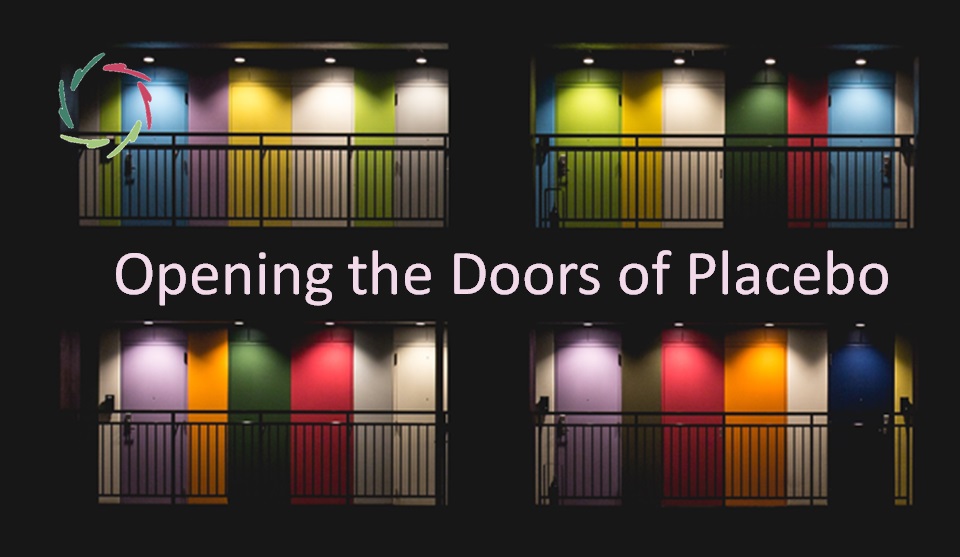Opening the Doors of Placebo

They are already open.
Placebo works.
Of course, not the pill or the potion, but the person who takes it. The placebo engenders the expectation/belief/hope that ‘it works.’
However, these are not open doors but rather keyholes through which long needles can be pushed that provoke some change inside. This change is pretty one-sided, even what I call ‘aggressive.’ The pure placebo carries no invitation for mental growth. There is no complex communication with the person’s depth.
Something gets inside and provokes a change-from-outside. Symptoms may diminish. Is that what you want?
Doors of perception (A. Huxley)
These are genuinely open ― no mere keyholes anymore. There can be a knock on the door, an invitation to open it, an invitation to come inside, the welcoming of a guest, a nice being-together at deeper levels.
Most of all, there is an invitation for inner strength and mental growth.
A mere placebo cannot accomplish this. The doors of placebo are closed. One may say even that placebo specifically keeps them closed by taking away symptoms without listening to them. Opening the doors is done by proper autosuggestion towards deeper mental patterns ― same doors, but very different handling of them.
This is about at least half of medicine.
[see: “Studies Show: Placebos as Effective as Treatment“]
Serious enough? This has a huge impact on whether people en masse open doors or keep them closed on many domains, in many concrete situations, looking for symptom relief. But these are not just some doors. They are essential doors towards the inner being, the deeper self, ‘soul’ if you like. Therefore, this also has an impressively negative socio-cultural impact within and far outside of physical and mental health.
Placebo shows there is something to be done, but by itself, it rather keeps the doors shut.
The real doors are at the symbolic level.
Therefore, the quality of the symbol is crucial. If nothing more than a straightforward pill, there is little to no quality. If the pill symbolizes the empathy of the one who prescribed it, there is more quality in what at first sight appears like the same entity. One may ask whether in such an empathic case, the pill is still needed.
Also, if the symbol is superficial, it may lead people astray. There is a real danger in this, especially in a culture that generally doesn’t care so much for symbolic quality. That makes people easy victims of manipulation of all sorts. People are then being led by whoever pulls some strings, uses some nice words, and gains easy money and power/influence, always bringing new promises, but without nourishing the soul. With every disappointment, the latter may become lonelier and victim to the next rage.
Opening inner doors isn’t easy.
It may take a lot of time and effort. That is not necessarily the case, but if one has no patience, with almost certainty, one will not get it.
In-depth, many cultures warn for the easy way, precisely because of this. Easy doors are like pictures on a stony wall. With little insight, eventually, they hurt.
The effort lies in finding the real doors inside yourself.
Once you find them, you find they’re already open, waiting for you.
They always have been.


